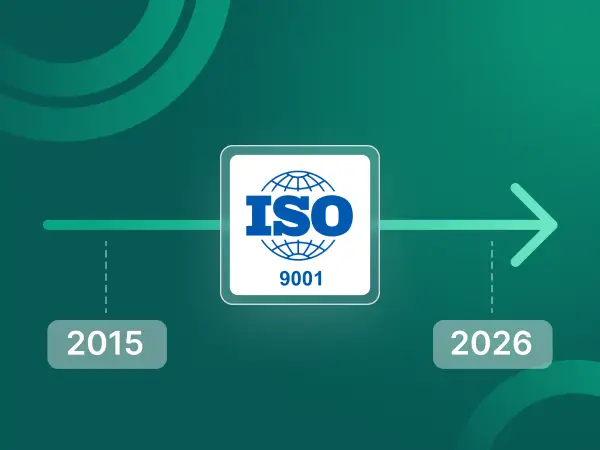What is an ESG rating
The ESG rating It is a tool that measures how sustainable and responsible an organization is at the level environmental, social and governance. In other words, it evaluates the way in which a company manages its impact on the planet, on people and on its internal structure.
The acronym ESG stands for Environmental, Social and Governance and represents a lens through which it is possible to observe performances Of a company going beyond just economic results. Nowadays, the analysis of the only The economic budget is no longer sufficient. Whether they are investors, consumers or business partners, interest is shifting towards a commitment to promote a corporate sustainability.
ESG ratings are created precisely to respond to this need.
These offer a structured assessment system which assigns a score to companies based on their commitment and concrete actions in the field environmental (for example, resource management and emission reduction), societal (working conditions, inclusivity, human rights) and governance (transparency, ethics, quality of leadership).
In recent years, these ratings are taking on an increasingly central role. They are a valuable tool for investors who want to direct their choices towards sustainable realities, but also for consumers And the firms who want to create more ethical and responsible supply chains.
What are the main ESG ratings
Unlike the certifications, which attest to the conformity to a precise standard, ESG rating they offer a comparative assessment of corporate performance in the environmental, social and governance fields. They don't just say if a company complies with a certain standard, but they show how much and how it is progressing along the path of sustainability.
Let's see which are the main evaluation tools.
EcoVadis
EcoVadis is based on international standards such as GRI, the UNGC (United Nations Global Compact) and various ISO standards such as ISO 14001 or ISO 26000. It evaluates the sustainability of companies through four macro-areas: environment, ethics, working conditions and sustainable purchasing. Each company receives a score on a scale from 0 to 100, useful for measuring its performance and demonstrating to business partners its concrete commitment along the supply chain.
CDP (Carbon Disclosure Project)
The CDP is one of the most used platforms globally for environmental reporting. It assesses the transparency and quality of actions taken by companies in three critical areas: climate change, water resource management and deforestation. The score is not assigned overall, but separately for each area, encouraging companies to address their environmental vulnerabilities with measurable strategies.
Often certification is also incorrectly considered among sustainability ratings B Corp, since to obtain it it was necessary to obtain a minimum score in the BIA (B Impact Assessment) of 80/100.
In 2025, however, there were new standards according to which the certification is no longer issued on the basis of a score, but on the basis of a series of minimum requirements on 7 impactful topics. If a company complies with these requirements, it can become B Corp, since it is no longer necessary to base obtaining certification on the basis of a score, as is the case with ESG ratings.

Who issues sustainability ratings
ESG ratings are processed by specialized agencies that assess the maturity and commitment of organizations with respect to environmental, social and governance criteria. These agencies analyze a large amount of information, often collected through shared standards and frameworks, to transform it into a score that describes a company's level of sustainability.
Each agency has its own analysis method based on different sources, such as sustainability reports, public data, questionnaires or internal audits, and on custom calculation models. The differences concern both the data collected and the weight attributed to each ESG component, so the same subject can receive different evaluations depending on the entity carrying out the analysis.
Among the main actors in this area we find:
- CDP (Carbon Disclosure Project);
- MSCI ESG Ratings;
- Sustainalytics;
- EcoVadis.
These operators play an increasingly important role in leading strategic choices of investors, customers and partners, helping to make sustainability a concrete and measurable element within the economic world.
EU Regulation 2024/3005: transparency and integrity of ESG rating activities
On December 12, 2024, it was published in the Official Journal of the European Union on Regulation (EU) 2024/3005, a fundamental step to ensure greater clarity and reliability in the world of ESG ratings. The text came into force with a transitional period on January 1, 2025, while the actual application will take place starting from July 2, 2026.
The regulation was created with the objective of strengthening the transparency, integrity and quality of environmental, social and governance assessments.
This new legislation represents a key piece in the framework of the European agenda for sustainable finance. The goal is to build a more solid and consistent market, counteracting the Greenwashing and Guardianship consumers and investors.
The new rules apply to all ESG rating providers operating in the European market, in particular to those who:
- publish ESG assessments online or distributes them by subscription to regulated financial entities;
- Provides ratings from abroad, but uses them within the European Union to guide business or public decisions.
Internal ESG ratings or ratings for private use only are excluded.
Those who work in the EU must obtain a special authorization from ESMA, the European Securities and Markets Authority, and be subject to its supervision. Requirements will be mandatory for transparency on methodologies, data used and evaluation criteria, to make the scoring process clear and traceable.
The 3 reasons why it's important to separate advice from ESG assessment
Among the most significant changes in the regulation there is also the Principle of separation between commercial and rating activities. On the path to authentic sustainability, the distinction between those who accompany companies in improving their ESG performance and those who evaluate their final result is fundamental.
That's why keeping advice and ratings separate is so important.
1. Avoid conflicts of interest
When the same entity provides both advisory support and the ESG rating, an obvious conflict of interest is created. Those who have led a company on the path of improvement inevitably have an incentive to show that that work has yielded good results. The risk is that of obtaining a distorted rating, which is too lenient or unreliable, which loses value in the eyes of the market.
2. Ensure independence and compliance
The independence of the evaluator is a key principle for ensuring the quality and transparency of ESG ratings. European regulations, such as EU Regulation 2024/3005, explicitly require that evaluation activities be free from any commercial link with the evaluated subject. Those who offer advice and then assign the score not only lose authority, but also risk not complying with the rules of the European market.
3. Preserving credibility and preventing greenwashing
A poorly independent ESG rating can easily turn into a front tool. When the evaluation appears to be “tailor-made”, it loses effectiveness and lends itself to greenwashing practices. This not only undermines the company's reputation, but it reduces trust on the part of key stakeholders: investors, customers, partners and institutions.






























